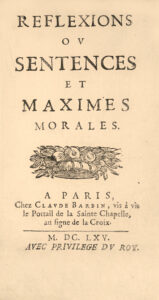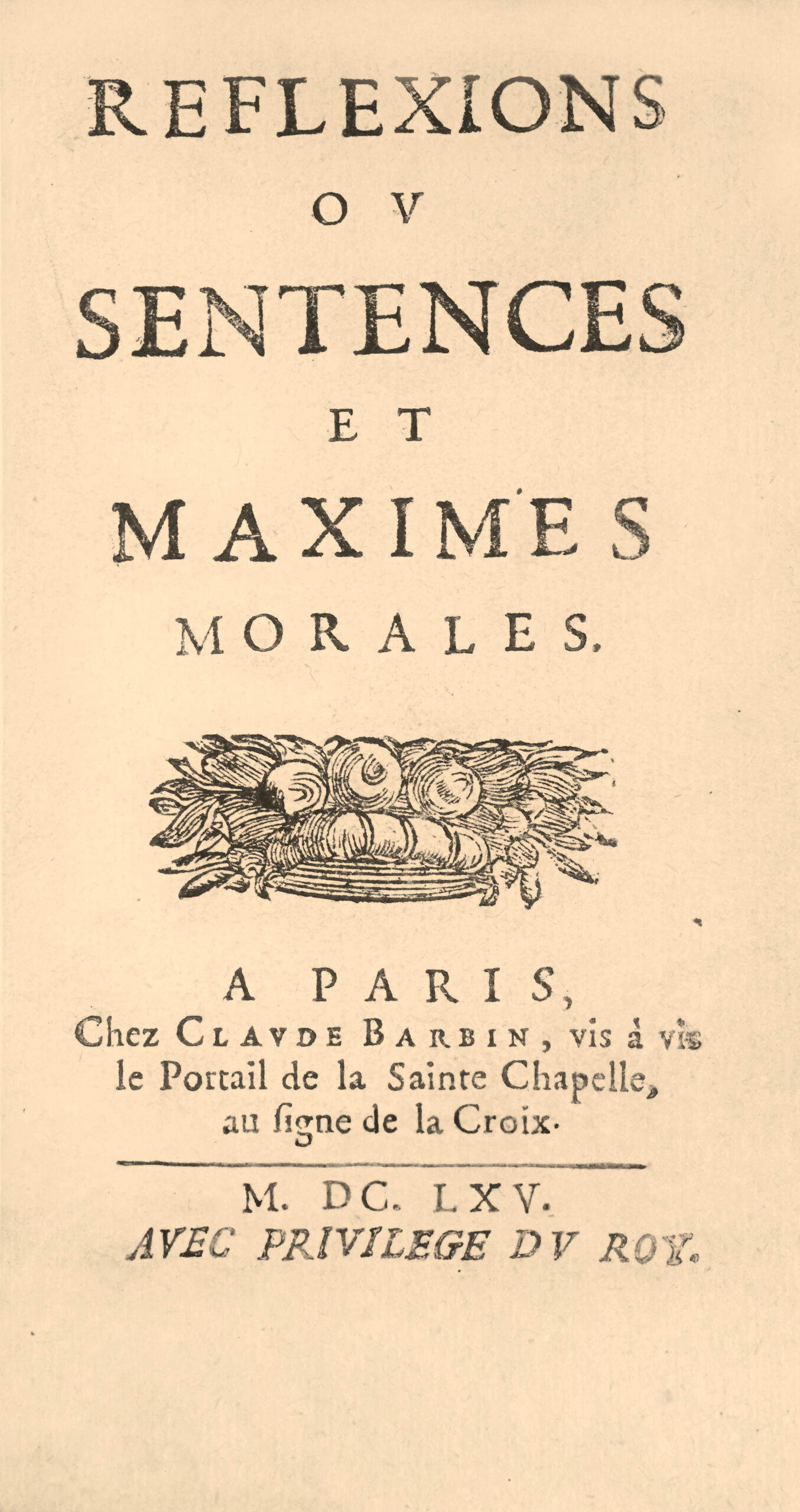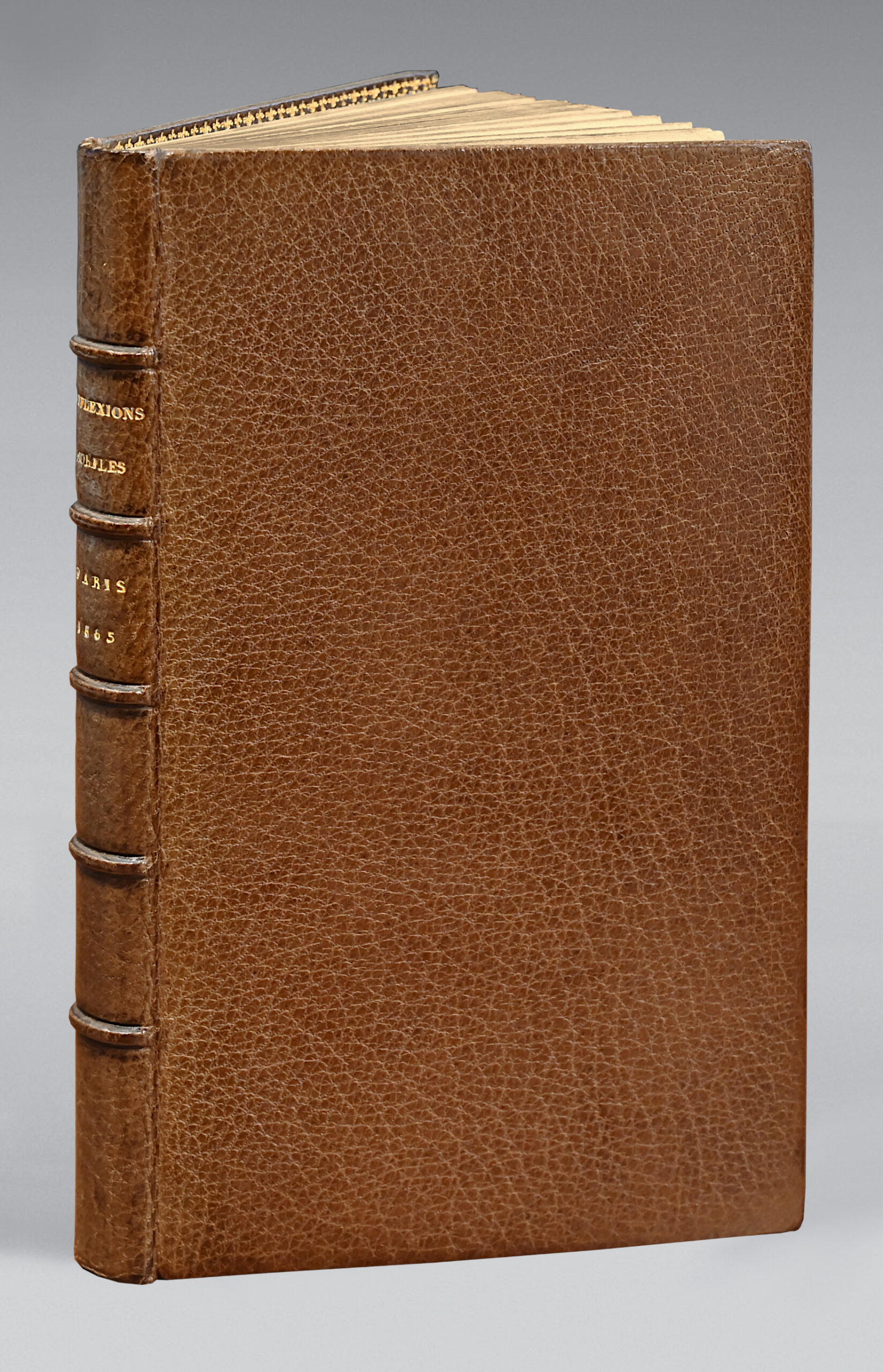Paris, Claude Barbin, 1665. Avec privilège du Roy.
12mo of (24) preliminary ll. included the frontispiece, 150 pp., (5) ll. of index and privilege. Bound in full brown jansenist morocco, spine ribbed, inner gilt border, gilt over marbled edges. Binding signed by Trautz-Bauzonnet.
147 x 83 mm.
A rare and extremely valuable first edition of one of the most important works of seventeenth-century French literature.
Tchemerzine, IV, 35; Cioranescu 40229; Le Petit, Editions originales, pp. 337-343; Rochebilière n°445-450.
It is adorned with a full-page frontispiece attributed to N. Poussin and engraved by Stéphane Picart. The privilege is dated 14 january 1664 and the printing was completed on 27 october 1664.
This is the first edition published in France and with the author’s permission.
Copy from the first state with cancels from the second edition, containing 316 maxims.
The Maximes are the work of maturity and old age of a writer who embarked on the path of literature late in life. They show the evolution of a way of thinking gradually enriched by experience, but also darkened by disillusionment.
The success of this book was considerable. The good spirits of the time recognized themselves in this lucid and disillusioned vision of the world.
“In these remarks on human behaviour, which follow one another in no particular order, a coherent line of thought emerges. La Rochefoucauld cruelly demonstrates man’s true motivation. He shows how every action can be explained by the play of self-love, the instinctive impulse that drives each individual to make everything about himself, to reason in terms of his own interests. He thus develops a pessimistic philosophy based on the idea that human beings are incapable of seeking the absolute and aspiring to the ideal of the good”.
A precious copy of this sought-after first edition in a delightful jansenist morocco binding by Trautz-Bauzonnet.
It comes from the prestigious collections of the comte de Fresne (1893, n°75), Jules Lemaitre and Auguste Garnier with their ex libris.
The last printed leaf bears handwritten annotations from the eighteenth century (inventory of clothes with prices).
See less information



